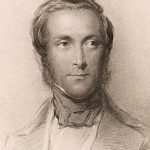One of the greatest achievements of the Victorians took place in the home country, not abroad somewhere in the over-large Empire. A railway network second to none, not even the massive transcontinental railroads of the United States, sprang up linking every part of the United Kingdom. Just before the First War there were over 20,000 miles of railway in Britain.
As part of the great nationalization craze after the Second War under Clement Atlee, great names of railway companies vanished: GWR, LNER, LMS and other acronyms for rail companies were not to be heard again, though with the de-nationalisation at the end of the 20th century, old companies were revived under new names.
In the Fifties it was observed that the public’s use of the best railway system in the world had dropped a bit. Much of the stock was out of date. Most engines were steam, not diesel. General Sir Brian Robertson and the British Transport Commission very sensibly advised an overall checkup and modernization of the system, which was all very well and much needed, but the exultant newspapers had forgotten a major rule: politicians only see the short-term outlook. There were repeated and not very reputable labour disputes on the railways, led by footplate workers. Much more freight was being carried on the new roads, not the ‘old-fashioned tracks’. Some idiot in government thought that this meant building more and bigger roads.
A man called Ernest Marples was the PM’s Minister of Transport, and he could not see that the more roads you built, the more traffic jams occurred on them. He also thought (and said) that the good General and his Transport Commission were ‘incompetent’ (all politicians consider all generals incompetent, one of the reasons why major wars take years to blow themselves out).
Marples suggested that the then head of Imperial Chemical Industries, Dr Richard Beeching should replace both General and Commission. He said Beeching had ‘one of the most able and fertile brains in the industrial and commercial world’. It has been suggested that this man was already in the pay of certain persons who wished to cover all Britain with motorways, and this might be true, but PM Macmillan still met with Beeching on 10 May, 1961.
The good doctor was put in charge of ‘modernizing’ the railways. The trade unions were understandably miffed, but were never consulted by Macmillan or Beeching. First, the latter closed the railway workshops where the rolling stock and locomotives were made and serviced. Workers received no warning. Then Beeching ste to work in earnest.
He abolished the BTC and was declared head of British Railways. He eliminated 70,000 (seventy thousand) jobs. The Beeching Plan when put into effect was to lead to the reduction of railway mileage from 17,500 in 1963 to 11,000 in 1975. This was just over HALF of the railway capacity enjoyed by Britain in 1914. It would be hard to top such brilliance in planning.
Meanwhile new motorways sprang up across the country, destroying the countryside, swallowing whole ancient villages (we must be modern!), diverting rivers, draining natural lakes, destroying woods, arable land and pasture. Wherever you looked there were motorways, motorway bridges, and massive traffic jams.
Railway travel had been cheap and environmentally friendly. Fuels necessary were easily obtainable. The railway network had linked up Britain in a way that roads could never do. The remarkable thing about trains was how tolerantly they left Nature intact. One train passing per hour does not pollute the air like thirty thousand gas-guzzling road vehicles. City centres became jammed fast, and understandably ugly. Not even Hitler could have done so much utterly to change the face of Britain. I am not sure if Dr. Beeching returned to Imperial Chemical Industries after destroying the railways.









Leave A Comment